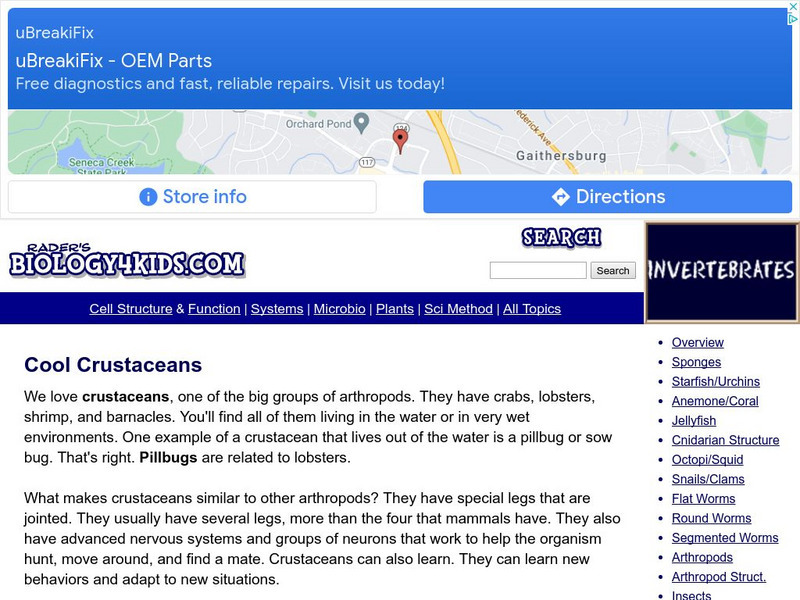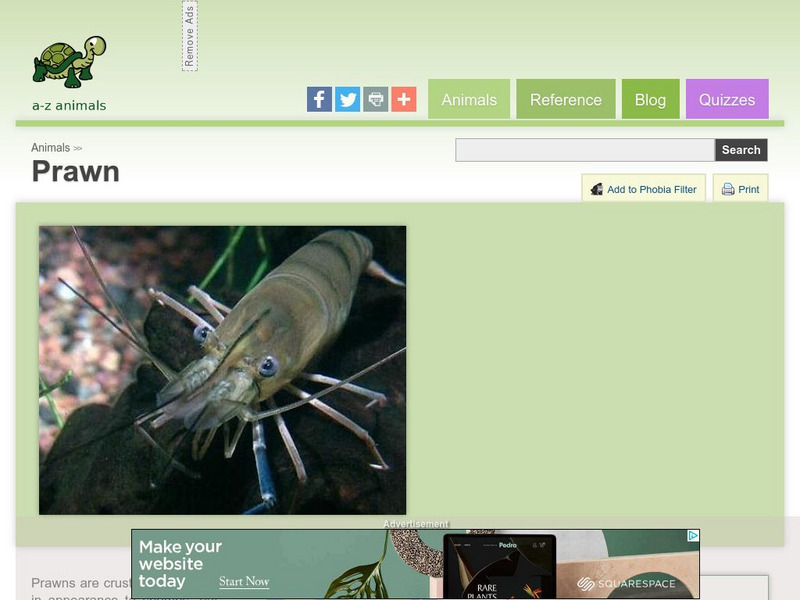Hi, what do you want to do?
Environmental Education for Kids
Eek!: Alien Profile: Spiny Water Flea
Learn how the spiny water flea first came to North America, where it has spread to, how to identify it, how it is dispersed, the damage it causes, and what can be done to fight this invasive species.
Monterey Bay Aquarium
Monterey Bay Aquarium: Acorn Barnacle
Meet the acorn barnacle and learn cool facts, its natural history, and conservation status.
Other
San Francisco Zoo: Land Hermit Crab
Detailed information and fascinating facts about the land hermit crab include diet, habitat, physical features, behavior, and conservation status.
Australian Broadcasting Corporation
Australian Broadcasting Corporation: News in Science: Antarctic Reveals Treasure Trove of Life
From ABC News in Science, Maggie Fox's article examines research connected to the various species of life discovered in the "dark waters around Antarctica." These findings include sponges, crustaceans, and new worms.
Middle School Science
Crayfish Dissection
In this lab experiment site, you will "Observe the external and internal anatomy of a crayfish, determine the sex of a crayfish using external anatomy, and collect statistical data on crayfish length and cheliped length."
Biology 4 kids
Biology4 Kids: Cool Crustaceans
What crustacean lives outside of water? Find out while perusing this text about crustaceans, a large category of arthropods.
A-Z Animals
A Z Animals: Animal Facts: Prawn (Dendrobranchiata)
Provides photograph and facts about the prawn, a crustacean. Discusses physical characteristics, where they are found, diet, and how humans use them.
Unique Australian Animals
Unique Australian Animals: Yabby
The Yabby is an Australian freshwater crayfish. Read the description at this website to learn more.
Science Struck
Science Struck: Decomposers in the Ocean: Role and Examples
Describes five different types of decomposers that feed on decaying organic matter in the oceans and that are at the bottom of the ocean food chain.
Ducksters
Ducksters: Animals for Kids: Invertebrates
What is an Invertebrate? Kids learn about these animals that have no backbone such as worms, mollusks, insects, and spiders.
BiologyWise
Biology Wise: Facts About Daphnia (Water Fleas)
Describes the physical characteristics of Daphnia, their importance as a food source for freshwater fish, their diet, life cycle, and methods of reproduction. Offers tips for how to start and maintain a colony of Daphnia that can be used...
Saint Louis Zoo
Saint Louis Zoo: Crustaceans
Discover fun facts and learn about the habitat, diet, and appearance of crustaceans.










